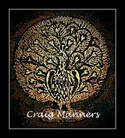|
The Victory of Reason. A Commentary from Breakpoint.org
"Although Western cultural elites deny it, non-Westerners know full well that the key to the West's success over the centuries is Christianity. This is Eric Metaxas. It never ceases to amaze me how modern western secularists are doing all in their power to purge Christianity from public life. As Chuck Colson told me once, “They’re sawing off the branch they’re sitting on.” Today on BreakPoint, we re-air a broadcast from 2006 in which Chuck explains the fact that the freedoms and scientific progress we enjoy in the West are due to the West’s embrace of Christianity. Here’s Chuck. When you hear the word “globalization,” you probably think of Chinese factories or customer service centers in India. What you probably don’t think about is Christianity. Yet globalization and Christianity are linked in ways you may never have imagined. Globalization is about more than markets and technology. It’s also about the spread across national boundaries of ideas and values—in other words, culture. While the spread and exchange of culture flows in many different directions, the ideas and values most associated with globalization are those of the West. And this is where Christianity comes in. In his marvelous book, The Victory of Reason: How Christianity Led to Freedom, Capitalism, and Western Success, Rodney Stark writes that “Christianity created Western Civilization.” Without Christianity’s commitment to “reason, progress, and moral equality, today the entire world would be about where non-European societies were in, say, 1800.” This would be a world “with many astrologers and alchemists but no scientists. A world of despots, lacking universities, banks, factories, eyeglasses, chimneys, and pianos.” The “modern world,” to which globalization aspires, “arose only in Christian societies. Not in Islam. Not in Asia. Not in a ‘secular’ society—there having been none.” Needless to say, Stark’s conclusions aren’t popular with academics and other intellectuals and have been savaged by liberal reviewers. These folks are all too happy to blame Christianity for some of the darker episodes in Western history, but they’re not about to give the faith credit for Western success. No matter. Non-westerners see the connection. For example, Chinese scholars were asked to “look into what accounted for the success, in fact, the pre-eminence of the West all over the world.” After considering possible military, economic, political and cultural explanations, they concluded that the answer lay in what the Chinese scholars saw as the “heart” of the West’s pre-eminent culture: Christianity. These non-Christian and non-western scholars had “no doubt” that “the Christian moral foundation of social and cultural life was what made possible the emergence of capitalism and the successful transition to democratic politics.” Apparently, many of their countrymen agree. Whereas there were approximately 2 million Christians in China when Mao came to power in 1949, today there are upwards of 100 million. What’s more, Christianity is especially popular among the “best-educated” and most modern Chinese. Why? Because like people everywhere, except, ironically, in the West, they see Christianity as “intrinsic to becoming modern.” For them, Christianity is an alternative to a way of life that bred misery and oppression. They understand Christianity’s role in the rise of the West, even as Western elites deny the connection. Of course, this isn’t the primary reason that Christianity is “becoming globalized far more rapidly than is democracy, capitalism or modernity.” That is due to the proclamation of the Gospel and the work of the Holy Spirit. Still, it’s a powerful reminder of how Christianity transforms not only individual lives but entire societies as well." http://www.breakpoint.org/bpcommentaries/entry/13/28621
0 Comments
Your comment will be posted after it is approved.
Leave a Reply. |
Craig MannersWhile much of what is written in this Blog may currently appear to be counter-cultural, given our post-truth culture, it is in no way counter-human beings. I am always for people no matter what they think, do, or may have done in their past. Where I put forward ideas or debate against certain ideology, behaviour, ideas, movements, politics, I remain very much on the side of the human beings even though I may be opposed to their worldview, behaviour and politics. Such opposition is generally out of concern for the ultimate consequences of such behaviour or ideas, especially for children. |
- Africa
- Reflections by Craig Manners
-
Articles by Craig Manners
- While We Wait by Craig Manners
- Written on our Hearts by Craig Manners
- Cure for Death by Craig Manners
- Perfect Justice, Perfect Mercy. Only God Could do This. By Craig Manners
- Authority By Craig Manners
- Creation and Providence by Craig Manners
- Forgiveness by Craig Manners
- All Things for Good by Craig Manners
- A Complete Education by Craig Manners
- Humans. Moral beings or not?
- Soviet Era Mass Conversion Therapy Mind Control Set to Control the West by Craig Manners
- On the Road to Adelong by Craig Manners >
- What is Christianity all about? >
- Note Pad
- To be Frank!
- A Cultural Revolution
- Wanted: Men who Understand the Times
- Grieved by the Grievance Virus
Contact Craig Manners
Copyright Craig Manners © 2016 to 2019
